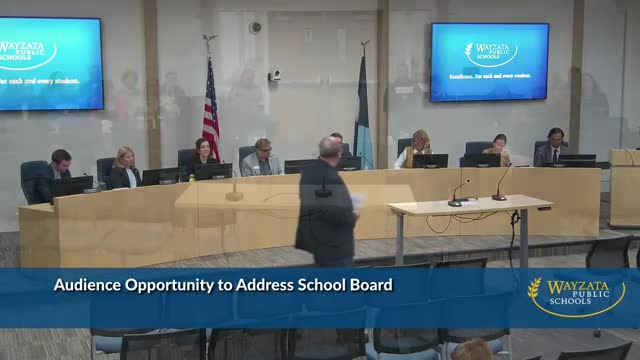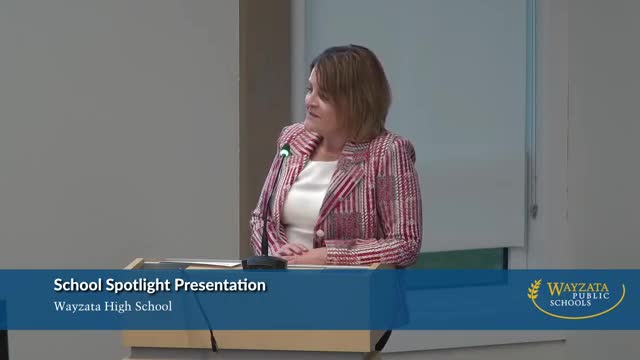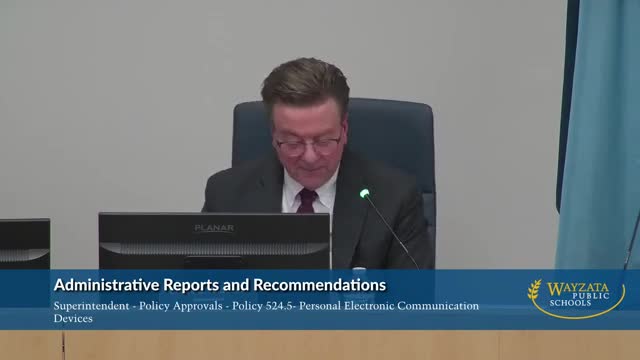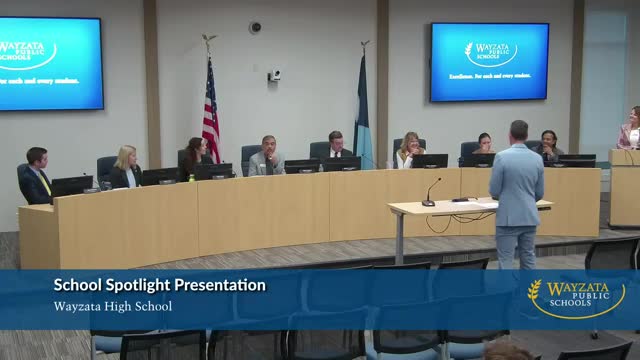Article not found
This article is no longer available. But don't worry—we've gathered other articles that discuss the same topic.

Parent and scientist urges Wayzata to adopt school solar program

Teachers, counselors raise concerns about middle‑school block schedule, staffing and involuntary transfers

Wayzata school board approves policies and two budget items; middle-school phone policy alignment discussed

